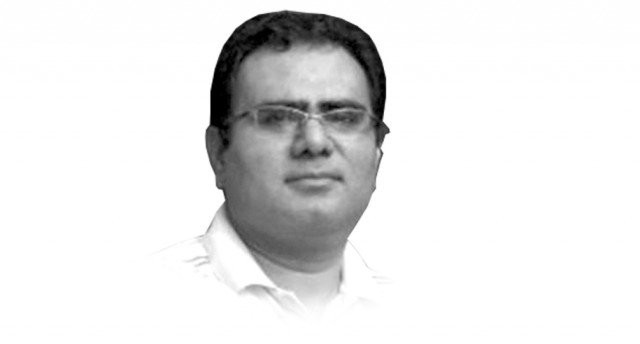A tool for helping the poor

The situation that Pakistan currently finds itself in is not enviable by any stretch of the imagination and it is passing through a phase where its resources are being stretched between various competing wants, and cuts and sacrifices have to be made. Unfortunately when this happens, we often find that ordinary people have to bear the brunt. This means that those not well off have to suffer further losses in their standard of living. Furthermore, any accompanying rise in poverty and unemployment affects this segment of the population disproportionately.
From the government and policy-making point of view, those earning wages have to be taxed as well as those who want to expand their commodity-producing capacity — the last must be ready to pay more interest on loans and inputs or go out of business. So the measures that one can expect to see in the budget for next year (which is to be presented in parliament on June 5) would be an increase in tax for small businesses from 20 to 25 per cent, bringing 122 categories under the value added tax (VAT) net and removal of an existing subsidy on electricity of some Rs60 billion.
Clearly, our participation in the war on terror is a drain on the resource pie and is hampering the ability of the government to generate an environment conducive for economic growth. Persistent inflation is a problem as well and this is a symptom of the fiscal deficit, which needs to be slashed to 4.1 per cent of GDP.
Presently, without seriously re-aligning the system of public finance for growth that is pro-poor, all that our economic managers are doing is akin to superficial surgery and the result seems to be a reduction of the public sector development programme by at least 30 per cent. The other measure is an increase in domestic resource mobilisation which seems an ambitious target give that growth during the last fiscal year was a mere 1.2 per cent. How such measures will stimulate growth so that it rises to over four per cent – the level that the government would like it to be for the economy to stabilise – is still under question.
For this purpose, Pakistan needs to give industrialisation of agriculture and manufacturing sector a serious try under a well-thought out economic ideology for development.
So far, without having a coherent vision for economic development since the early 1980s, the structure of economic growth has increased horizontal inequalities in Pakistan. During the first decade of this century many geographical regions were able to achieve faster growth rate, in particular central Punjab, while others such as parts of Balochistan witnessed an increase in poverty levels and a marked slowdown in growth. The social and political implications of the structure of economic growth need to be addressed in a quicker way so that patterns of inclusive growth for diverse social groups are mainstreamed. The budget is a tool to plan for such transformations but the question is that when will this be done?
The neoliberal ideology of ‘rolling back the state’ has actually resulted in a deterioration of the institutional arrangements that carry out the economic vision of the state — and these have been rendered dysfunctional. As a result, the quality of the government has suffered. And research has shown that this in turn affects the ability of the government to enact policies that make people not only materially well-off but also happy, because they can promote entrepreneurial spirit, administer social protection, generate employment-led growth, and design resources for conflict management. Our budget may need to address this wider systemic question as well.
Published in the Express Tribune, June 4th, 2010.















COMMENTS
Comments are moderated and generally will be posted if they are on-topic and not abusive.
For more information, please see our Comments FAQ